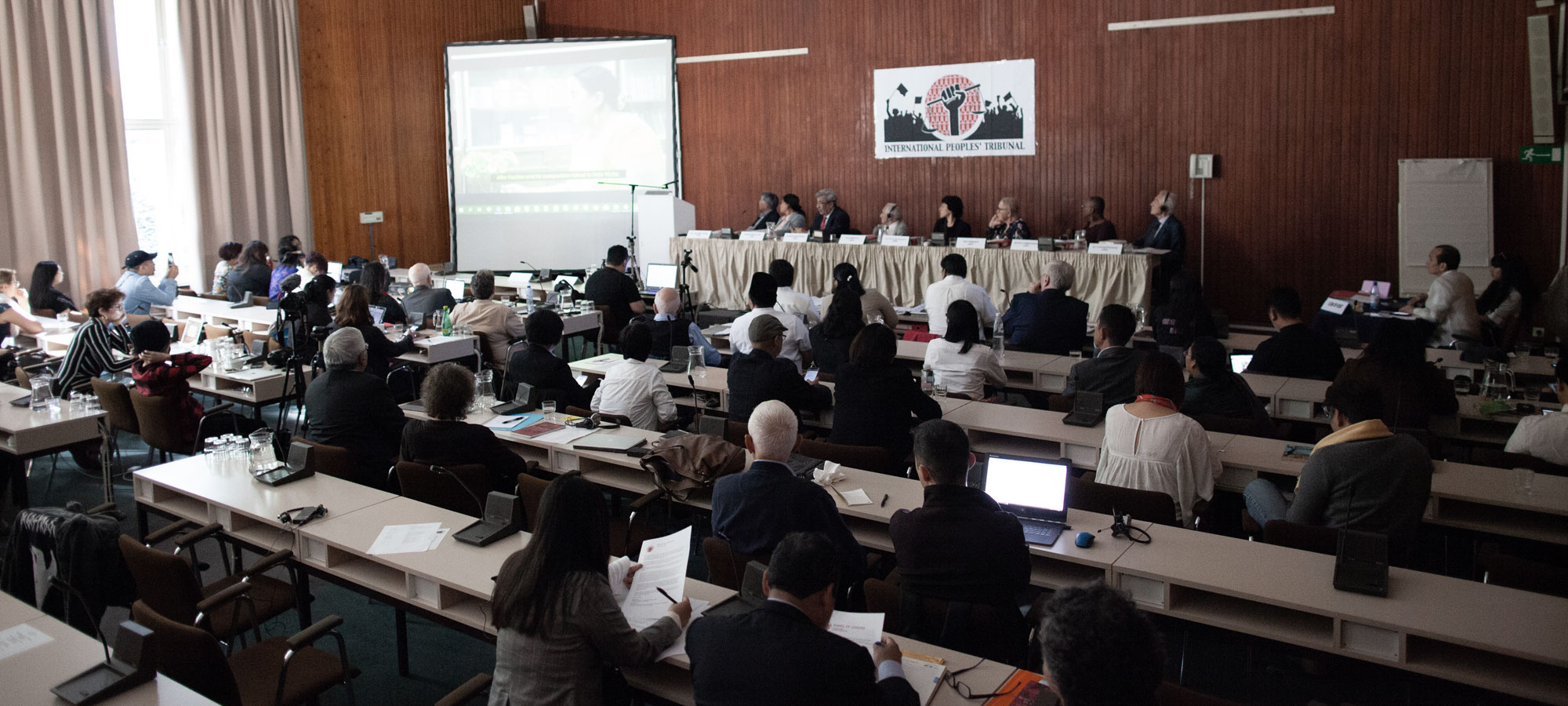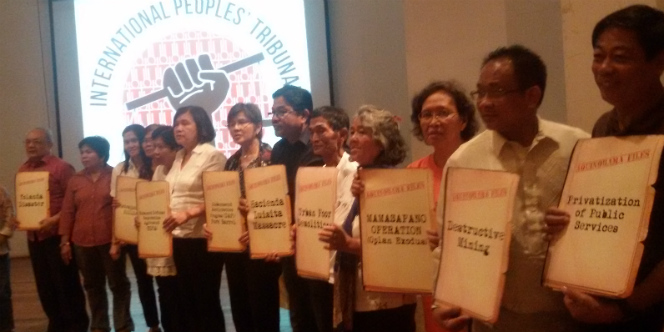Who’s Afraid of Liza Maza?: US enforces ‘security’ measures on PH soil
A prominent women’s rights activist and former parliamentarian yesterday revealed that she was prevented from boarding a plane to the United States.

A prominent women’s rights activist and former parliamentarian yesterday revealed that she was prevented from boarding a plane to the United States.
In this video, former Gabriela Rep. Liza Maza, narrates how a supposed e-mail from the Customs and Border Protection of the US Department of Homeland Security caused the ground staff of Korean Airlines to accost her while waiting for her 11:15 a.m. flight at Gate 5 of the Ninoy Aquino International Airport Terminal 1. Maza has a valid 10-year US visa:
“I am outraged that I have been held at an airport in my own country…miles away from US territory,” Maza said.
She suspects that she was held to prevent her from testifying at the International People’s Tribunal, which starts today in Washington DC.
The IPT will hear complaints on various “crimes” committed under the Aquino and Obama administrations. These include high-profile cases of human rights violations, such as extrajudicial killings of botanist Leonard Co and priest Fausto Tentorio, as well as the effects of unequal trade and military agreements between the US and the Philippines.
Maza, chairperson of the International Women’s Alliance, was supposed to testify on the killing of transgender Jennifer Laude by a US soldier, and on the virtual return of US bases under the Aquino-Obama Enhanced Defense Cooperation Agreement.
Another possible reason why Maza was withheld from travel to the US was her participation in the high-profile mission wherein women leaders, including Gloria Steinem and two Nobel Peace Laureates, crossed the demilitarized zone bordering North and South Korea last May.
According to Jonjon Montemayor, Maza’s legal counsel, the US government’s action is a “violation of her freedom of movement, association, and expression,” which are covered under international treaties.
He said that the US government had “no legal basis” to enforce its security measures on Philippine soil. He divulged that the US government also collects passenger data from airline carriers—also a violation of the right to privacy.
Data from the Department of Homeland Security reveals that the US government stopped 223,712 “inadmissible aliens” from entering the United States through various ports of entry. Of this, 11,494 “high-risk travelers who would have been found inadmissible” were prevented from boarding flights destined for the US.
Inadmissibility grounds included immigration violations, and criminal and national security-related reasons.
“What is more troubling is that the US is not obliged to give a reason for blacklisting certain individuals. There is also no mechanism where it can be appealed,” Montemayor said.
Maza’s colleague, former Bayan Muna Rep. Satur Ocampo, recounted a similar incident in 2004 when he was denied a US visa on the grounds of being seen as a “threat to national security.”
Ocampo was invited to the University of Berkeley to speak on various social issues in the Philippines. While applying for a US visa, he was led into an interrogation room, where he was presented a thick “dossier” that allegedly contains information of his “anti-government” activities—even as he was already a legislator at that time.
Meanwhile, human rights group Karapatan said Maza’s experience only bolsters the charges lodged at the IPT against the Aquino and Obama administrations. “Victims of rights abuses and their kin will indict Aquino and the US government for numerous civil, political, economic and socio-cultural rights violations,” Cristina Palabay, Karapatan secretary general, said.
Maza called on the Filipino people to be watchful and vigilant as the US heightens its military presence in the Asia Pacific region. “Or else, the next thing you know, your rights and freedoms are being held hostage by the US, as they did to me and many others,” she said.


